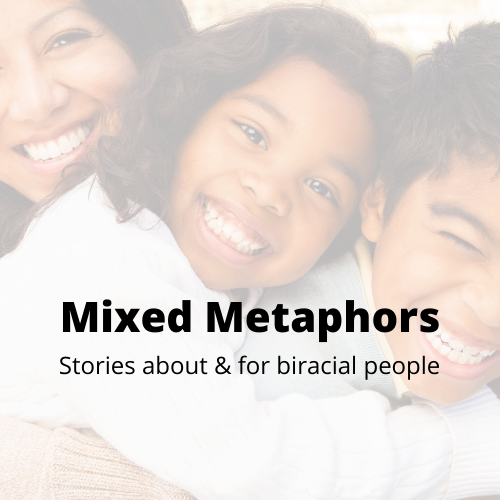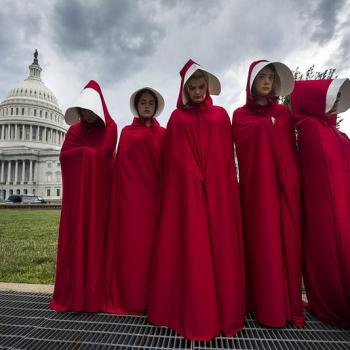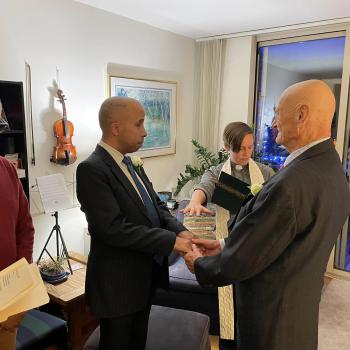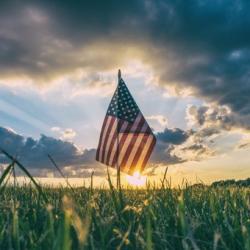
A myriad of thought pieces and journal articles strive to uncover the mystique of being biracial. Research and studies that inspired these academic takes on lived experience, aimed to demystify beings considered either exotic or second-class.
Mixed Metaphors
Academic dissection will never yield a complete understanding of the challenges biracial people face. More than 40 years of lived experience as a biracial cisgender man has driven that life lesson home again and again.
This social justice minister, policy advocate, and writer began life as the Black child — born prematurely — to an all-White family in downstate Illinois. Although Champaign-Urbana is my literal hometown, the University of Illinois’ presence didn’t create some anti-racism force field.
Tolerance Doesn’t Equal Love
Many family members spent 28 years of life tolerating my presence. An ultimatum from my great-grandmother, Lucille Mae Denniston Wilson Harrington, inspired that tolerance. It ceased when she took her last breath in May 2009.
The trials and tribulations didn’t stop there. Getting out of my own head became an immense challenge. As a natural-born empath, an obsession to honor all of me took hold. Memories of being cognizant of not acting “too Black” or “too White” in particular venues rise to the surface.
In reality, White supremacy prompted my concern about acting too Black — even as I worried about dishonoring my White great-grandmother. Let’s be clear. This was an inner dialogue. Grandma never promoted this line of thinking.
In fact, she did what she could to expose me to Blackness. The Principal’s Scholars and Upward Bound programs both prepared me to become a successful University of Illinois at Urbana-Champaign alum and immerse me in Blackness. It was quite a culture shock.
Origin Of Guilt
Until then, except for school, my life was pretty much all-White. Unlike many of my Black friends, enjoying a patina of White privilege was among my advantages. Anxiety, which would eventually be revealed as guilt, plagued me.
A TV screen was a bay window through which this then 16-year-old boy witnessed the Los Angeles riots — sparked by Rodney King’s beating on my 15th birthday. The scenes shattered my sheltered reality.
The O.J. Simpson trial and saga — just as I entered college — would challenge my naive understanding of our criminal justice system. Since then, I’m more than clear about how White people and people of color in the system are treated differently. With that said, Simpson isn’t the best poster child for disparity.
The real world, strangely enough, truly revealed what it’s like to be Black in America. One might be biracial, but society usually one race — and it’s never the one that comes with privilege. My 20-year journalism career was spent being the first Black reporter at every newspaper.
Sundown Town
Time spent in Pekin, Ill. — a sundown town — gave me a close up version of how law enforcement can treat people of color. Although I was the only reporter of color at the local newspaper, two different officers pulled me over coming to and leaving work. It took my White editor’s intervention to alleviate the problem.

Reflecting on the situation forced me to realize I’ve enjoyed various kinds of privilege. In addition to enjoying White privilege by osmosis, being a member of the media garnered institutional privilege. Those layers of privilege spared many challenges not faced by other people of color. Struggling with a form of survivors’ guilt hit me upon entering seminary.
Immersion In Blackness
Immersing myself in that Blackness of Chicago’s South Side helped soothe that guilt. Fighting injustice against Black bodies in Chicago (Laquan McDonald) and Ferguson (Michael Brown) also helped me come to terms with it.
Eventually, though, I’ve accepted my journey is unique. That acceptance allowed me to stop living a life punctuated by guilt. That means no longer feeling guilty about whether I’m adequately representing my Black or White sides is reality.












